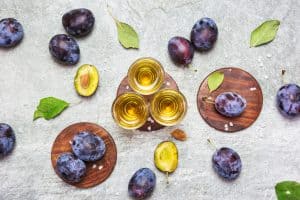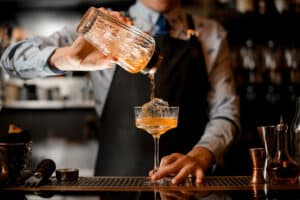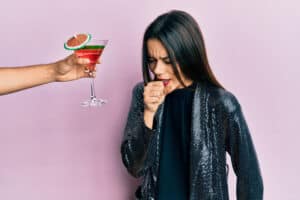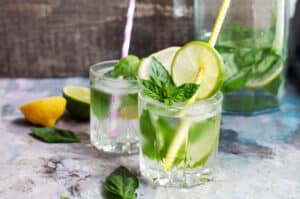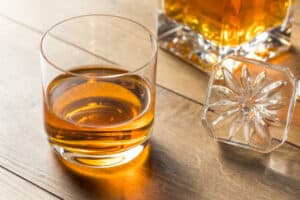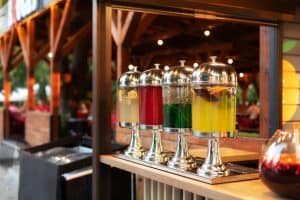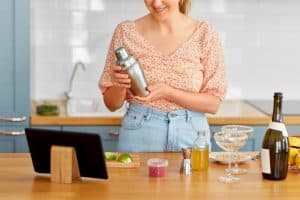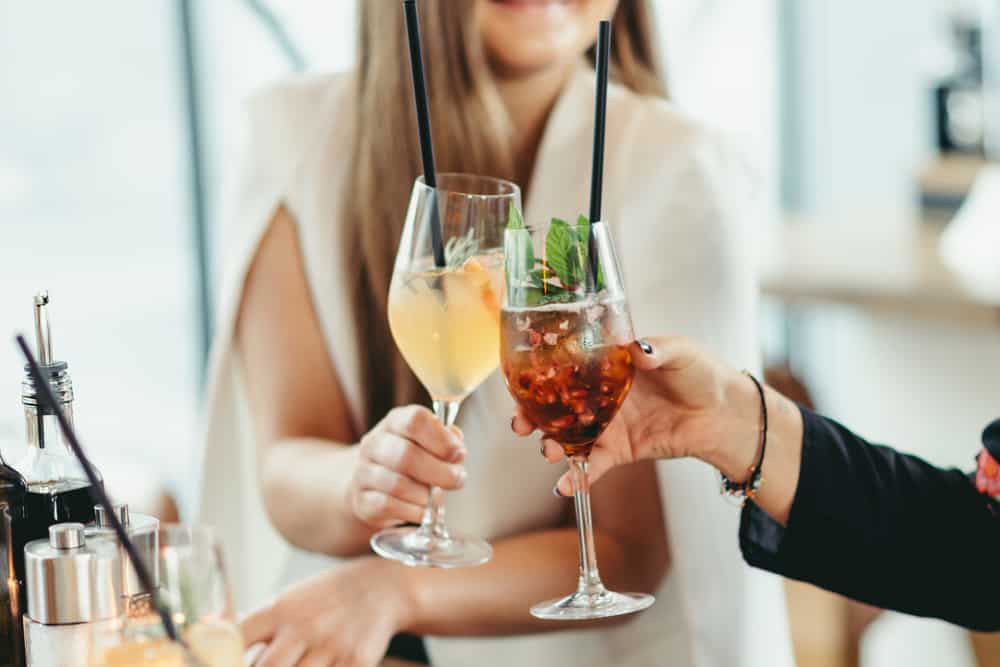
Whether you are cutting back on alcohol or concentrating on your health, it can feel somewhat devastating when you are walking around with a soda instead of a drink at a social gathering.
Some people cannot drink alcohol, while others are recovering from illness or taking medication that interacts negatively with alcohol.
So, what are you to do? What can you drink instead of alcohol?
These days there is a profusion of non-alcoholic wine, champagne, beer, mocktails, and even ABV-free spirits available; it is now simpler than ever to forgo drinking without feeling excluded. Alternatively, you may also consider other healthy drinks such as water, coconut water, kombucha, coffee, or tea when avoiding alcohol.
Today we’ll investigate alcohol-free “alcoholic” drinks, which still deliver the great taste of your favorite libations without the hangover or drunkenness that usually goes hand in hand with consuming alcohol. We’ll also look at alternatives completely removed from the world of alcohol but still give you something to drink when you attend or host a party.
Alcohol-Free “Alcoholic” Drinks
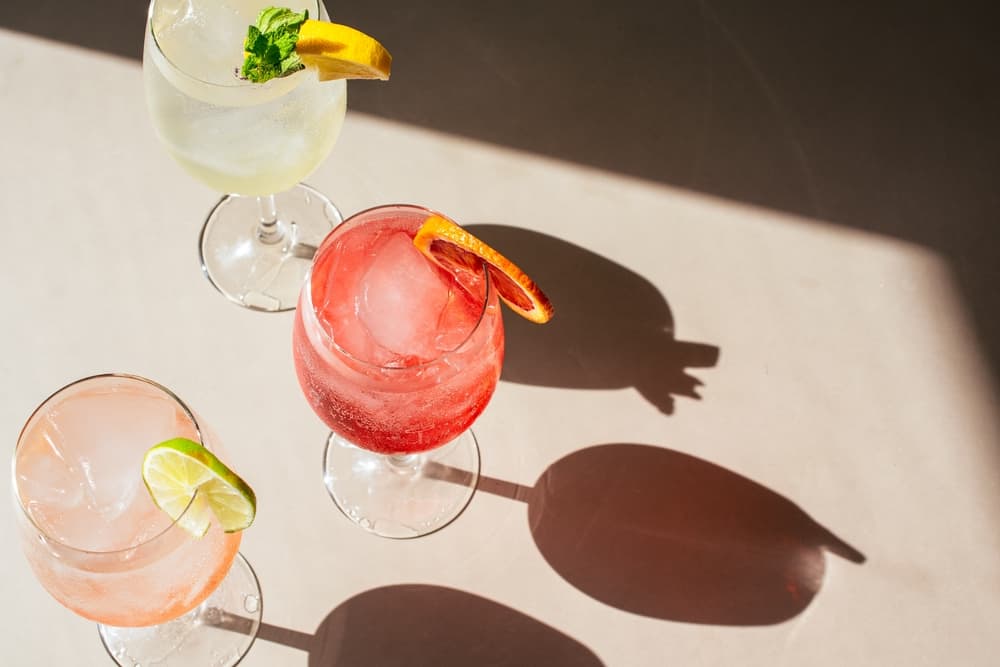
There are several health benefits to reducing your alcohol consumption. It improves your long-term overall health, provides a more youthful appearance, may considerably enhance your mental well-being, and can even assist you in losing weight.
However, once you’ve eliminated alcoholic beverages, you may find it difficult to replace the beverage hole left behind. Let’s investigate some alcohol-free “alcoholic” drinks to get you started on your journey of discovery.
Alcohol-Free Gin
While gin sales are soaring, the producers recognize that gin users’ alcohol intake has hit an all-time low, with customers increasingly committing to abstinence as clean eating habits become more prevalent.
Alcohol-free “gin” is still prepared by distilling juniper berries and adding steam-distilled botanicals and herbs. Ritual Zero Proof Gin Alternative is an excellent choice and a perfect alternative specifically made for cocktails on a one-to-one replacement ratio.
Non-ABV Beer
The beer industry has recognized the recent increase in sales of its alcohol-free and low-alcohol beers (0.5% ABV).
To help consumers avoid gaining extra pounds and reduce their regular alcohol intake, big brands have pushed their customers to choose “light” versions of several of their favorites.
Moreover, in recent years, more craft beer manufacturers have recognized a rising demand for premium alcohol-free beers sought after by younger customers who seek entertaining and cool brands while still being responsible drinkers.
The big push is to have a non-alcoholic beer that still tastes like its alcoholic counterpart, and for the keenly minded, here’s a list of the top non-alcoholic beers you can try.
Alcohol-Free Sparkling Wine
The beer industry has been at the forefront of providing customers with low-alcohol or even alcohol-free alternatives to their normal lineup of products.
Today, the alcohol-free versions are almost impossible to distinguish from their alcoholic counterparts. Even the spirits distillers caught on to this new trend.
They started providing consumers with alcohol-free alternatives, such as botanical mixes for popular spirits such as gin, while keeping the taste as original as possible.
The wineries were slower to change their ways, and the available alternatives were sub-par and often tasted terrible. In turn, consumers shied away from alcohol-free wines and sparkling wines.
And then, there are wineries such as Noughty, who ramped up the offerings by offering non-alcoholic sparkling wines produced from grapes sourced from southern Spain. Additionally, their sparkling wines are vegan-friendly, and the vineyards use organic farming methods.
They still use traditional methods to produce their sparkling wine but de-alcoholize it to retain its flavor while offering an alcohol-free drinking experience.
Another one to keep an eye out for is Grüvi, which produces alcohol-free prosecco and other gluten- and sulfite-free wines.
Mocktails or Non-Alcoholic Cocktails
Non-alcoholic drinks used to have a rather bad image. Club soda with lime is just boring.
Fortunately, we live in a time where alcohol-free choices are just as exciting, sophisticated, and delectable as their boozed-up counterparts.
And, whether for your guests or yourself, a delightful and refreshing mocktail, or virgin cocktail, is always a fantastic idea.
Other Alternatives

For those who do not want an alcohol-free alternative or do not want the association with alcohol, there are other options as well. We’ll look at some of the trendiest, tasteful, and health-conscious options below.
Water
Perhaps not the trendiest option, but water will always be the best choice if you try to avoid alcohol—whether for health reasons or just in general. But plain tap water can be quite boring…
Opt for sparkling water, flavored sparkling waters infused with fruit tastes, or add a slice of lemon to your glass. Take your water to the next level by adding strawberries, lemon, or mint leaves for a light and sweet flavor.
Another popular and pleasant addition is either cucumber, lemon, or celery. Adding fruit and herbs to your water will not only encourage you to forget about alcohol in social situations, but it will also motivate you to drink more water frequently.
Do yourself a favor and make it an occasion—serve your water in a beautiful glass to elevate your drinking experience.
Coconut Water
Coconut water is found in young, green coconuts, and one coconut provides between half a cup and a full cup of coconut water.
Expect a subtle nutty flavor when you sip this delicious and healthy alternative. Coconut water should not be mistaken for coconut milk, which is prepared by combining shredded coconut meat with water.
Coconut water is also a low-calorie and low-carbohydrate alternative to alcoholic beverages. Fresh coconut water directly from the fruit is usually preferable, but store-bought is a good choice if you don’t have enough space in the fridge to store coconuts.
Check the label to ensure you’re getting 100% coconut water, not a flavored product loaded with sugar and artificial flavorings.
Kombucha
Kombucha is a naturally gently fizzy fermented beverage made from black or green tea and symbiotic bacteria. It has a cult appeal among consumers looking for something “grown-up” but still healthy.
Many Kombucha enthusiasts and manufacturers praise its probiotic and antioxidant properties. Its popularity has risen, particularly in major cities where progressive pubs and restaurants have noticed its “cool” factor because of its lack of sugar and health benefits.
Tea
If you don’t consume alcohol, tea is an excellent substitute.
Tea is widely available and more tasty and stimulating than plain water. It is up to you whether you want a hot cuppa or try a cold-brew tea.
Still, various infusions are available for individuals who enjoy sweet, spicy, fruity, or flowery scents and tastes. For special occasions, take out the fine china and host a high tea, or pour yourself a mug of warmth on a cold night.
Arthur Wing Pinero famously said: “Where there is tea, there is hope.”
Coffee
Coffee is another fantastic option that can be tailored to your liking with various tastes, add-ins, and preparation techniques.
You can, for example, drink it hot or iced, with or without sugar, or sweeten it with flavored syrup—whether sugar-based or natural.
Conclusion
New trends show that alcohol use will fall across the board in the next few years for various reasons. People seek to discover effective alternatives to alcohol to relax, socialize, and celebrate.
Consumers are also becoming more health conscious and are adapting their lifestyles. The beverages business is also aware of these changes and is stepping up to the plate to offer us healthier alternatives without forgoing taste (and losing their market share and profits).

